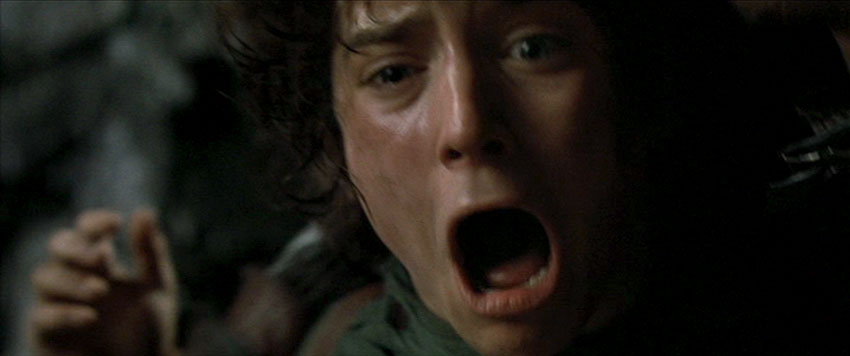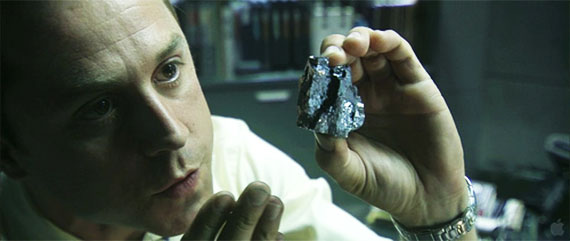Photo Credit: balt-arts via Compfight cc
So, Mark discussed a bit about what sort of films each of us likes, and why. In fact, he summed up my appreciation for the fantasy genre by saying “If there be swords, it boards.”
Clever. Though not quite 100% true. Sure, I have a soft spot for anything where someone is running around saving the world with a naked blade in hand. Most of my childhood fantasies involved me doing exactly the same thing, only with a naked cardboard tube. But there are still examples of fantasy that suck. Horribly. And after watching a significant amount of it, reading volumes of it, and studying storytelling via university classes, podcasts, online courses and more, I can share a meagre bit of wisdom in this field.
Note: These concepts also apply to speculative fiction, horror and all other genre-based stories, but we’ll just discuss this in terms of fantasy.
It’s easy to create fantasy fiction. It is ridiculously difficult to create good fantasy fiction. This is because of two conflicting rules for fantasy fiction that create a paradox:
- The heart of the story has to stand alone without any of the genre elements.
- If you need a dragon to tell a story, set it in a world with dragons.
Let’s look at these individually.
The heart of the story.
Stories are, at their core, about people making choices and experiencing the consequences. These are choices they wouldn’t usually make, and yet they are completely credible. Call it purist, and it is, but we don’t want to hear the story about how you went to buy milk after work, like you always do. We want to hear about the one day that you chose to do something different. In improvisation, this is called ‘breaking the routine’ and it is the start of any good scene, or story. There is a consequence of this different choice, which leads to another choice, which leads to another consequence, and so on. These choices lead our character down a completely unique path, and when they come out the other side, they are changed forever. This can mean anything from having a new appreciation for the life they were already living, to deep personal growth, to death. Changed.
Sure, there is much more to storytelling than this, but at their core, most excellent stories have this in common. Notice however, that this description has nothing to do with swords, dragons, elves, monsters, ships, demons, baristas, office buildings, sports cars, Transformers, or anything else. This core is not genre-dependent. This heart of the story can be found in the galley of an intergalactic spaceship, in the dwarven mines beneath Mount Grok or in the produce section of a grocery store. Most fantasy fiction goes south when it gets so caught up in how cool the dragons are, that they forget about choice and consequence. Why do we care about Frodo? Because he and Sam got separated from the rest of the Fellowship, and had to start making their own difficult choices on how to proceed. At times they had to choose whether or not to proceed.
The Demand for Dragons
The other rule, is that if you want to tell a story in a world with dragons, you need the story to be dependent on dragons.
“But I thought you just said that the heart of the story should be transferrable to any other genre?”
Yes, the heart, but not the structure. If part of your struggle is about the destruction that unmitigated industrialization can have on the natural world, you could show it in a ham-fisted, Avatar sort of way.
Or you could have an army of orcs tearing down vast swaths of an ancient forest to feed a war machine. Fantasy lets you use allegories to explore real world issues from a slight distance, and potentially a fresh perspective. If you put a Catholic, a Buddhist, a Muslim and a Jew in a room, and ask, “Why can’t we all just get along?” people might find themselves drawn to identifying with one over the others. If you put a dwarf, an elf, a goblin and an orc in the room and ask the same question, an observer has a better chance of considering all perspectives. Done properly, this can be very powerful. Done poorly this can be as stereotypical and close-minded as a Republican from the Deep South.
(Pro tip: You can do the same in science fiction with alien races, but culturally we have a more consistent vocabulary of archetypes with orcs, dwarves, elves and giants. The shorthand is, well, shorter.)
An amateur sees a dragon as a mythical beast with a treasure horde that flies and breathes fire. A pro sees a dragon as an allegory for ultimate power, wealth, freedom, anarchy and the corruption and devastation that comes with it.
Executed properly, fantasy can delve into some of the biggest questions humanity has, while simultaneously distancing us slightly so we can examine these big questions from a different perspective.

“You see me as a terrifying beast that rains down death and destruction. I see myself as a sort of Middle-earth Donald Trump. And you’re fired. Ha! See what I did there?”
There are authors that have grappled with this paradox and won. Their stories are captivating, thought-inspiring and rewarding. There are plenty of authors that get caught up in the trappings and forget both rules. Their stories are pedantic, amateurish and grossly unsatisfying. And this applies to all genres.
So I guess it comes down to understanding your story. What’s really going on. And then finding the right home for it. Don’t start with swords and sorcerers. But if the story needs them, really needs them, then let there be dragons.



